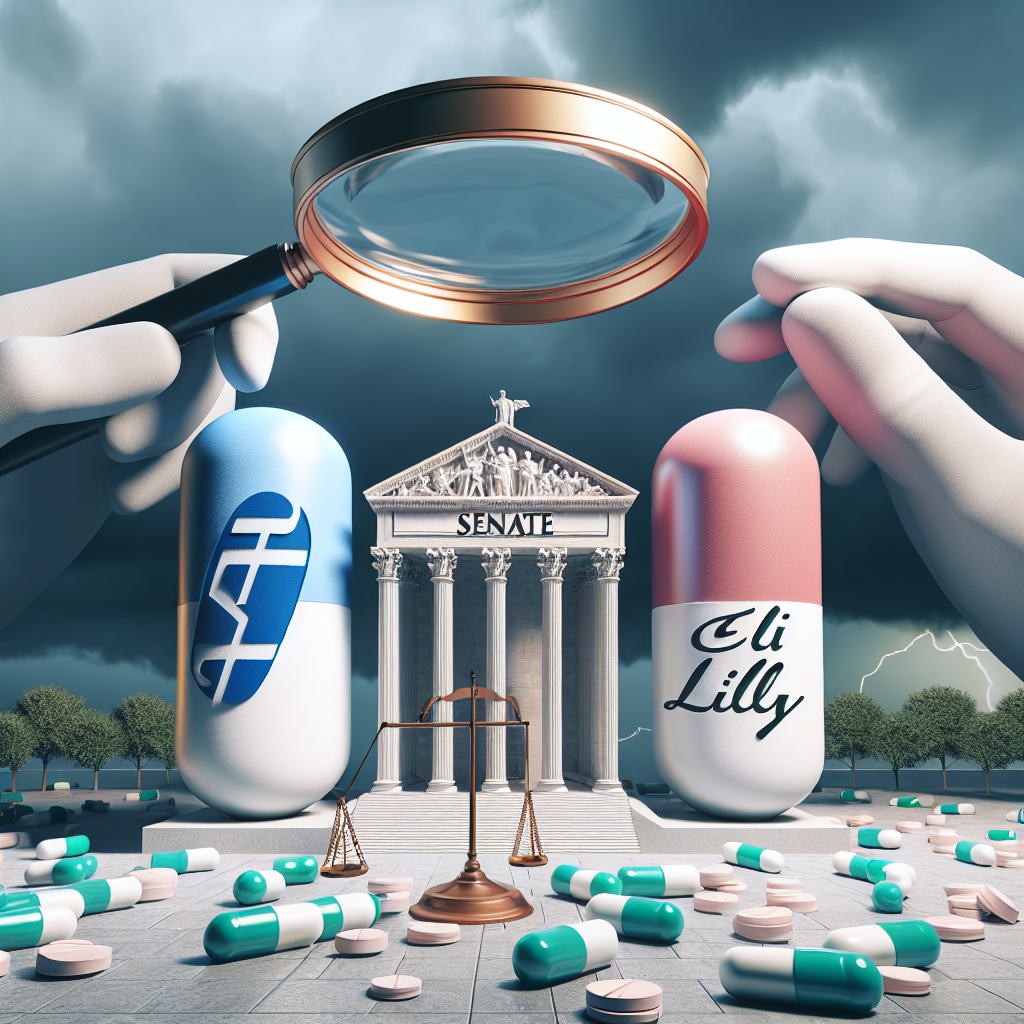Pharma Stocks Today: Senate Probes into Pfizer and Eli Lilly’s Telehealth Platforms
Understanding the Direct-to-Consumer (DTC) Landscape
As the pharmaceutical industry continues to evolve, a significant spotlight has recently been cast on direct-to-consumer (DTC) platforms, particularly those operated by pharmaceutical giants Pfizer and Eli Lilly. These platforms, PfizerForAll and LillyDirect, launched in 2024, aim to bridge the gap between healthcare providers and patients through virtual and in-person consultations, coupled with delivery of medications directly to the consumers’ doorsteps. However, the newfound convenience of telehealth services has raised eyebrows among several U.S. senators who are expanding their investigation into these platforms and their telehealth provider partners.
Senate Inquiry: What’s the Concern?
Several months ago, a group of Democratic senators, including Dick Durbin (IL), Peter Welch (VT), Elizabeth Warren (MA), and Independent Bernie Sanders (VT), initiated inquiries directed at Pfizer and Eli Lilly regarding their DTC telehealth platforms. Their concerns primarily revolve around the potential steering of prescriptions towards specific medications offered by these pharma companies, which could lead to inappropriate prescribing practices and increased spending for federal health programs.
The senators presented a list of 13 probing questions, aimed at unraveling the nature of the relationships between the big pharma companies and their contracted telehealth providers. Key queries included whether the pharmaceutical firms influence prescription patterns and whether their partnerships might be designed to funnel patients towards particular medications.
The inquiry has now expanded to include five telehealth providers linked with Lilly and Pfizer: 9amHealth, Thirty Madison, Form Health, Populus Health Technologies, and UpScriptHealth. These telehealth companies have been given until April 15, 2024, to respond to similar questions posed to them by the senators.
The Market Implications of Senatorial Action
From an investment perspective, the ongoing scrutiny of these DTC platforms has potential implications for the pharmaceutical sector, particularly as regulatory appetites seem to sharpen. Investors need to closely monitor how this investigation unfolds, as it could influence not only the operational strategies of Pfizer and Eli Lilly but also the related telehealth companies that depend heavily on these partnerships.
The concern expressed by lawmakers—that a patient directed to a telehealth prescriber associated with a pharmaceutical company may be predisposed to request that company’s drugs—could ultimately lead to stricter regulations of the telehealth landscape. If legislation emerges from this scrutiny, it may serve to disrupt existing business models that rely on these platforms as key revenue drivers.
Reactions from Pharma Giants
Both Pfizer and Eli Lilly have emphasized the independence of their telehealth partners in the face of this inquiry. The companies have repeatedly asserted that financial arrangements with providers do not incentivize the prescribing of specific drugs. Lilly has also seized the opportunity to focus attention on safety issues related to compounded drugs, especially in light of the controversy surrounding its GLP-1 diabetes medication, tirzepatide, and the entry of compounded alternatives into the market.
However, given the ongoing legal battles over the production of compounded versions of popular medications, the landscape remains tense. Just recently, a court ruling halted the compounding of versions of tirzepatide, which could significantly impact Lilly’s market positioning and competitive advantages going forward.
The Competitive Landscape: Rising Need for Transparency
The continued expansion of telehealth services reflects a broader shift in consumer behavior that has surged since the pandemic. Patients are increasingly seeking convenience and immediate access to healthcare, and DTC platforms cater to these needs aptly. However, as the inquiry suggests, this convenience must be matched with ethical practices and transparency to prevent market manipulation and ensure patient safety.
With the scrutiny applied by regulatory bodies, companies that operate within the DTC space will need to reassess their strategies to align with broader expectations around healthcare integrity. The balance of consumer demand for accessibility and the need for ethical prescribing practices will be crucial in this evolving landscape.
Looking Ahead
Investors in the pharmaceutical sector should approach the current climate with caution. While the growth potential offered by telehealth and DTC platforms is undeniably attractive, the regulatory environment is rapidly evolving, and companies must remain agile to adapt to changes. The focus from lawmakers reflects a growing demand for accountability, which may well reshape how DTC pharmaceutical marketing is executed.
As the deadline for telehealth providers to respond approaches, and with the potential for upcoming legislation on the table, both Pfizer and Eli Lilly, alongside their partners, will need to navigate these challenges thoughtfully. For savvy investors, monitoring any shifts in market dynamics or regulatory frameworks is essential to making informed decisions in the biotech space.
In summary, the intersection of telehealth and pharmaceuticals offers both opportunity and risk as the industry grapples with regulatory challenges and societal expectations regarding patient care. Investors should stay tuned to these developments, as they may have widespread ramifications for the future of pharmaceutical sales and marketing.
















